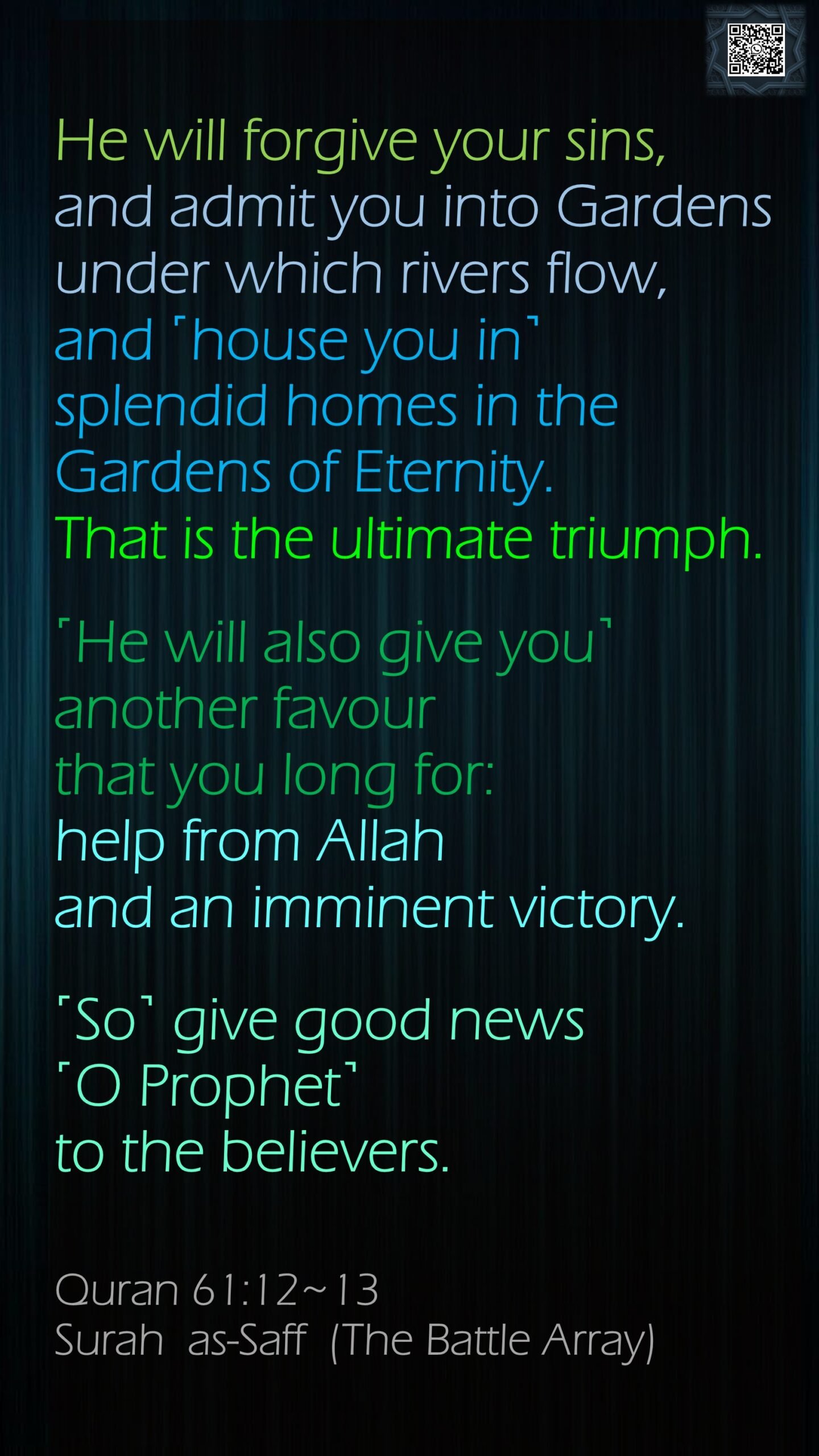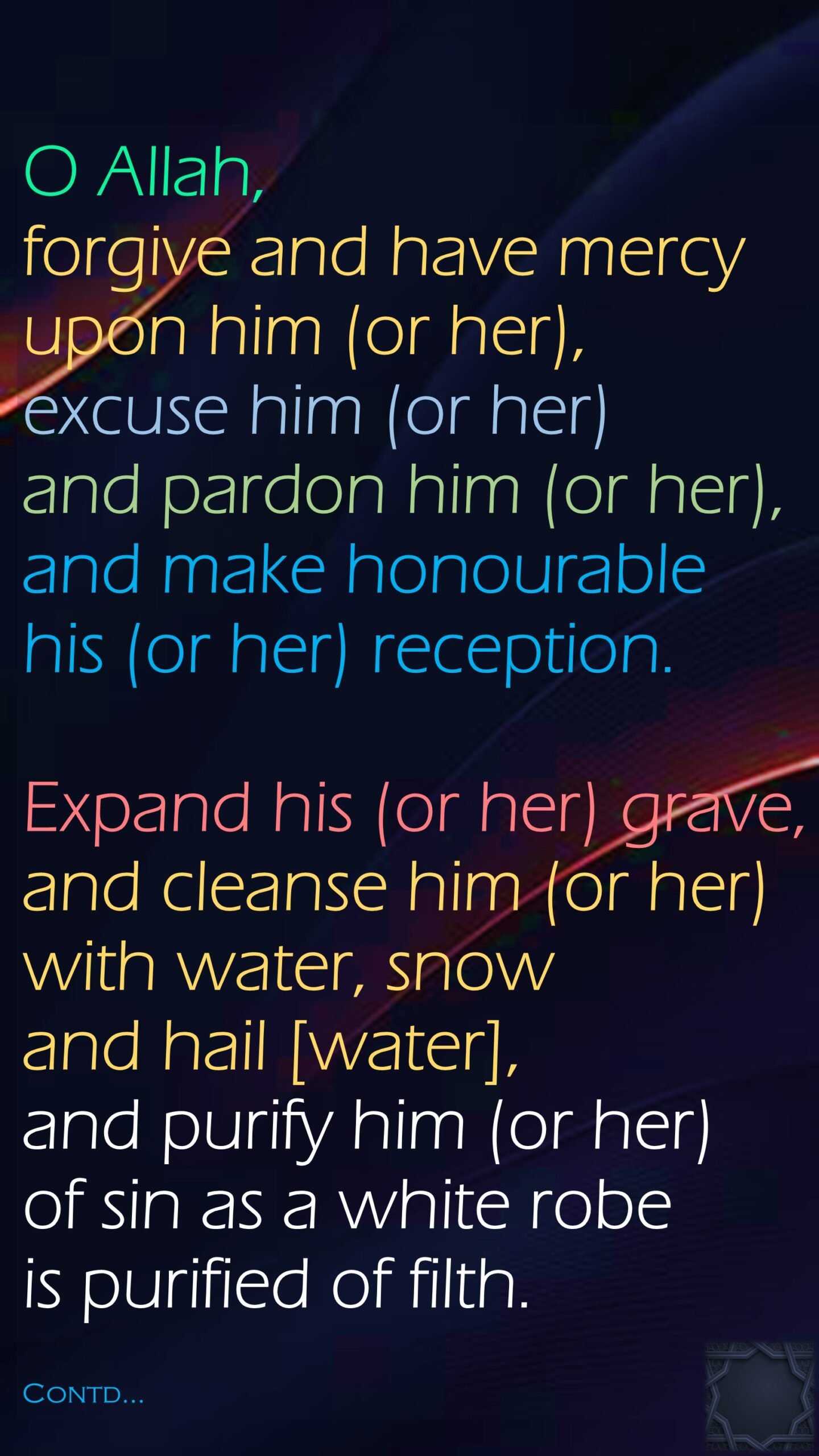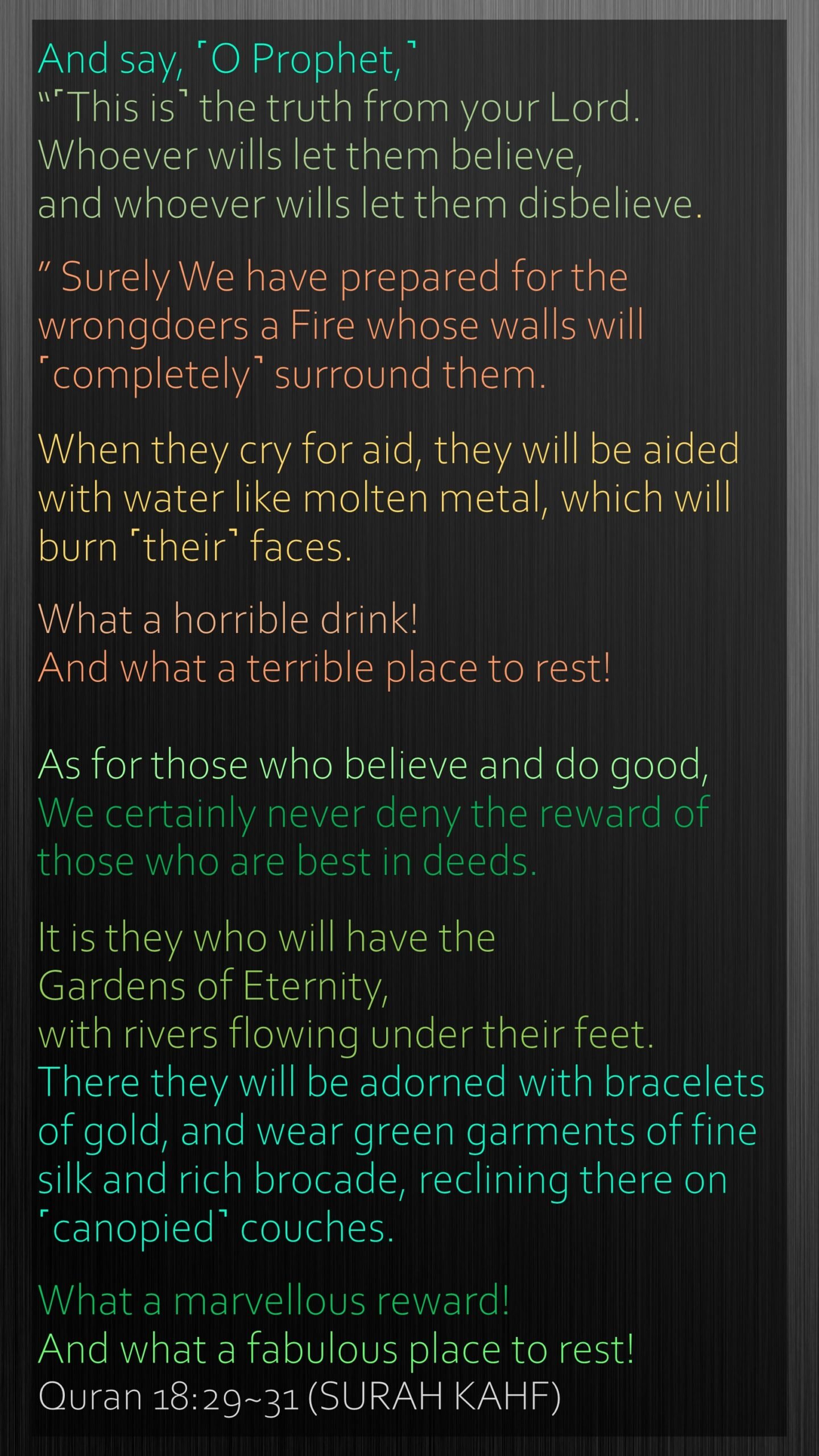27
Jul, 2025
Quran 61:12~13 (Ayah as-Saff)
Islam, Quran admit, Allah, ayat, believer, daily, Eternity, favour, forgive, garden, good, help, home, imminent, inspirations, islam, islamic, Muhammad, paradise, Prophet, quran, river, splendid, Surah, triumph, ultimate, victory, نَصۡرࣱ مِّنَ ٱللَّهِ وَفَتۡحࣱ قَرِیبࣱۗ
23
Sep, 2024
Hadees: Nisai 1985 (Funeral Prayer)
Hadees, Islam admit, Allah, Allahhuma, daily, exchange, excuse, expand, family, female, filth, fire, forgive, funeral, garden, garment, grave, hail, Heaven, her, His, home, honorable, ice, inspirations, islam, islamic, Jannah, male, man, Mercy, Muhammad, pardon, prayer, Punishment, purify, quran, reception, robe, spouse, supplication, torment, Water, white, woman
11
Apr, 2024
Quran 68:17~29
Islam, Quran Accountability, Al-Qalam, all, Allah, Allah willing, Allah's Will, Ash, ashes, ayat, Chapter 68, creation, daily, day, daybreak, deprive, devsatate, Divine Punishment, Divine Revelation, Ethics, Faith, fixate, fruit, garden, gratitude, guidance, harvest, humility, inspirations, islam, islamic, Judgment Day, lost, Miskeen, Morality, Muhammad, needy, patience, poor, Prophet Muhammad, quran, Reflection, say, sensible, struck, Surah, Surah Al-Qalam\, torment, urge, Verses 17~29, whisper, wisdom, wrongdoer
18
Nov, 2023
Quran 85:11~16
Islam, Quran al-Burooj, All-Forgiving, All-Glorious, All-Loving, Allah, Almighty, ayat, believer, constelatiuons, crushing, daily, garden, Greatest, grip, inspirations, islam, islamic, Lord, Lord or the Worlds, mighty, originate, quran, resurrect, river, Severe, sky, starts, Surah, throne, triumph, will
8
Jul, 2023










